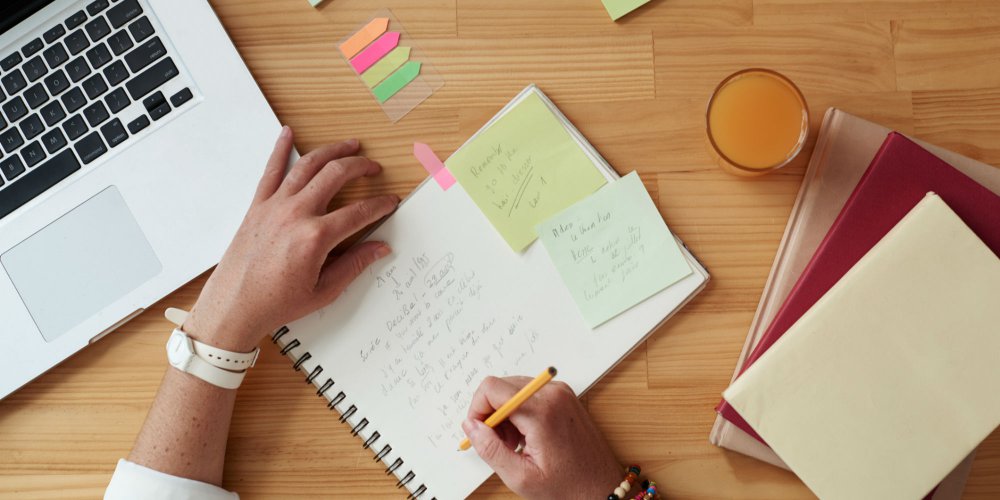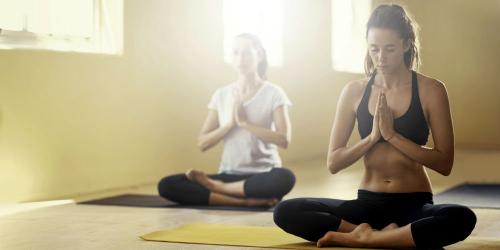It's time for exams.
Our conscience tells us to stay glued to our chair day and night until day H.
And yet, according to experts, it would not be the key to successful exams.
Anne Blanchard, coach-naturopath, gives us some tips to approach the tests with a light spirit.
Physical activity, the key to "a healthy mind in a healthy body"
Contrary to what one may think, to take the air during its revisions is primordial. We think to keep time for our sports activity or to make one if we did not do it before.
Sport is good for the body of course, but also for the brain. We are more productive when we have spent and ventilated.
Swimming and yoga, for example, have the advantage of also promoting relaxation and unity between body and mind.
It's been 2 hours that we work and we just read again 5 times our review sheet? A short break is necessary.
Rather than doing something to eat, go on the Internet or watch a little television, we will run.
Running just 5 or 10 minutes is enough to air our mind and give us some fishing before we go back to our revisions.
The coach's advice: Anne Blanchard reminds us that we must organize our time well. It is not a question of doing too much sport either at the risk of overworking the body and being less productive.
Better concentration thanks to relaxation exercises
- "Inspire, expire"
This exercise is taken from Paule Salomon's book, "Gourmande sérénité".
It can help us relax during tests and revisions.
The basis of the breath is the inhale and the exhale: one inspires consciously ten times in succession every three hours.
By doing this exercise every day, we gain a turnaround of being.
We consciously inhale, hold the lungs full for one minute, then breathe out and hold the lungs empty for one minute. To do 10 times in a row.
- The position of the Buddha
One puts oneself in the position of the Buddha ("hands joined, one hand in the other, in basket, inches touching") or just sitting at our table of work, one tries to fix an object, a flame or a wall for several minutes.
We breathe consciously and deeply with the stomach. We inhale through the nose and exhale through our mouths. We do not take his eyes from the object and then close and view it in our minds before reopening them.
Visual concentration increases the power of attention and can help us be more focused on our revisions.
- Pressures and stretching
This technique used to relax in all rooms comes from the book "50 exercises to relax with family" Gille Diederichs.
We begin by gently pinching the jaw 3 times towards our ears (with the thumb and the index finger phalanx).
Arriving under the ears, we mass the point below the lobe, that is to say the end of the jaw. We then massage gradually to the base of the skull. Several times in a row.
We pull the muscles of our neck by massaging them circularly with all our fingers and pulling the muscles upwards then we go down again by the shoulders, under the chin, the neck, and towards the middle of the chest.
Revisions: get organized and put in conditions at home
- Turn off your phone
Yes it's hard, it's true. You never know if Marie had an accident or that Nico had finally left Julie and that Alice was calling us to keep us informed?
Our little world will wait a few hours until we have finished our revisions. It's so much more fun to turn on your cell phone at the break and get lots of messages.
- Create a schedule
Many are already addicted to lists of all kinds. They plan their week but also everything they want to do but they do not have the time, all the places they will never go ... Yes but for the revisions of the tray, there, a list is really useful.
We make a small schedule where we note day after day its objectives. We update it every day and we set up time slots for sports, relaxation or for a drink with friends. The checklist technique is not bad either. The main thing is to stick to it.
Our key word? THE ORGANIZATION.
- Set up a soothing atmosphere
We warn his family that we do not want to be disturbed. It's not much but prevent it helps a few times. The place where we revise must be soothing.
We take care to put ourselves at ease: comfortable clothes, good temperature (not too hot it sleeps), a comfortable chair with a cushion behind the back, a smell that we like (it puts the brain awake) and a lot of light.
A good working atmosphere will really allow us to revise.
The importance of moments "for oneself"
Laughter: laughter and smile are extremely beneficial to relax so we do not hesitate at the first opportunity, we loose and laugh.
We can also do "ho ho ha ha ha" for 5 minutes, our brain does not differentiate between false laughs and real so if we do this exercise for 5 minutes we will manage to relax easily and quickly.
Take a nap: we keep a "nap moment" in our new schedule of revisions.
A nap of 5 to 20 minutes in the early afternoon gives us back very quickly. On the other hand, we avoid longer naps or awakening will be difficult and put us back to work, Mount Everest.
Treat yourself to a spa afternoon: we have a massage and a hammam to relax the day before the event. We remove all the stress and we can face anything after.
The coach's advice: Anne Blanchard uses the EFT tool, Emotional Freedom Technique, to help her clients. This is a "field" assessment of the person. This assesses its balances and imbalances. We identify the emotion that blocks the person (fear, anxiety, devaluation ...), we evaluate its intensity on a scale of 1 to 10 and we set up an acupuncture point circuit adapted to the "evil". After answering a certain number of questions to discover the origin of the problem, one re-evaluates the intensity of the emotion until its level is again "normal". This kind of tool can really help those of us who feel less confident to pass the bac or contest. In these cases problems can be solved through acupuncture and a coach.
Sleep well, the secret of performance
It can not be stressed enough: sleep is very important during exams and exams. So we take a regular rhythm, every day at the same time even if it's not very funny it will make us really more effective during the day.
The night is perhaps our only moment of respite so we take advantage of it by putting ourselves in a favorable environment to sleep: comfortable pajamas, pleasant smell, clean and well made bed ... What makes us want.
As soon as you feel tired, you go to bed. Above all we take the time to fall asleep if sleep does not come right away, we do not get anxious. We can always get up, do a relaxing activity until the fatigue is felt. It will come faster than we think if we relax.
To avoid :
- Exercise before bed. Quiet activity or a little relaxation is preferred.
- Heavy dinner before going to bed. It is very important to have a light dinner about 2 hours before going to sleep to avoid our body being fully digested as we go to bed.
- Drink exciting things like coffee and tea after 3pm. We rather take herbal tea or hot milk (even if it's a little grandma).
- A hot bath before bed will relax us and really promote a good night's sleep. However, hot baths are avoided.
- Rereading his lessons or cards in bed, calm one last time before going to bed can be really beneficial. Indeed during the night our brain will rehearse the last things read which promotes assimilation.
- We still avoid reading for the first time the chapter that we have not revised at all in our bed because it will distress us more than anything else and will lead to nothing very good.
The advice of the coach: Anne Blanchard offers us a sophrology exercise to evacuate "the negative" of a day and to fall asleep soothed. Sophrology is used to manage your breathing, relax and evacuate your stress.
The first step is to learn abdominal breathing rather than thoracic (which speeds up the emotions). The abdominal breathing allows to return "in its base", to refocus and to calm down.
Lie down, put your hands on your stomach and breathe through your stomach. At the inspiration: the hands move away as much as possible. When exhaling: act as if your hands are in your stomach. Become aware of your breathing and refocus. Make three ventral breaths. Block a few seconds after inhaling deeply. Exhale a big blow by expelling very strong all the negative of the day (anxiety, unpleasant moments ...). Then return to the ventral breathing.
Start again until you feel more relaxed.
Anne Blanchard's website: www.fesens.fr/



